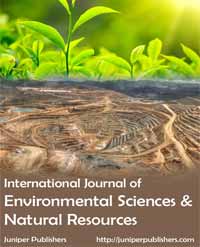Saving Water for Ecological Integrity: Agricultural Perspective of Per Drop More Crop
Abstract
Water is so essential for living organisms that it is said “save water, save life”. Pollution of water, scarcity of water (drought), excess of water (flood) and excessive snow-fall are the different forms in which water becomes unusable/creates problems for the survival of many organisms. Therefore, saving water in its usable form is essential for the existence of life on the earth. One of the ways to save water is its judicial use, which is essential for increasing water productivity. Availability of water in sufficient amount, for those who require it, is necessary for ecological integrity as well as ecological efficiency. While ecological efficiency is related with resource utilization and the extent to which resources are converted into biomass, ecological integrity is crucial for biodiversity conservation. About two-third of the available fresh water is utilized for agricultural activities, and any imprudent/imbalanced use of water in agriculture would make it unavailable for other crops or other activities. Rice consumes plenty of water for its cultivation when grown by transplanting, which might pose challenges for its cultivation in future, particularly due to the changing climatic conditions. However, dry/direct-sown rice (DSR) is emerging as a resource-conserving, economical, and climate-smart alternative to transplanted rice (TPR). Therefore, the need of the day is to replace TPR with DSR for better water productivity, minimizing the emission of anthropogenic greenhouse gases, and proceeding towards the negative emission agriculture. To produce sufficient food/feed/fodder in safe and sustainable manners for the burgeoning global populations, it is necessary to wisely use the natural resources taking the help of modern tools and techniques, along with the conventional methods, considering the biosafety and ethical issues for better ecological efficiency and integrity.
Read More about this Article: https://juniperpublishers.com/ijesnr/IJESNR.MS.ID.556248.php
Read More Juniper Publishers Google Scholar: https://scholar.google.com/citations?view_op=view_citation&hl=en&user=4WXzQFMAAAAJ&citation_for_view=4WXzQFMAAAAJ:M3ejUd6NZC8C



Comments
Post a Comment